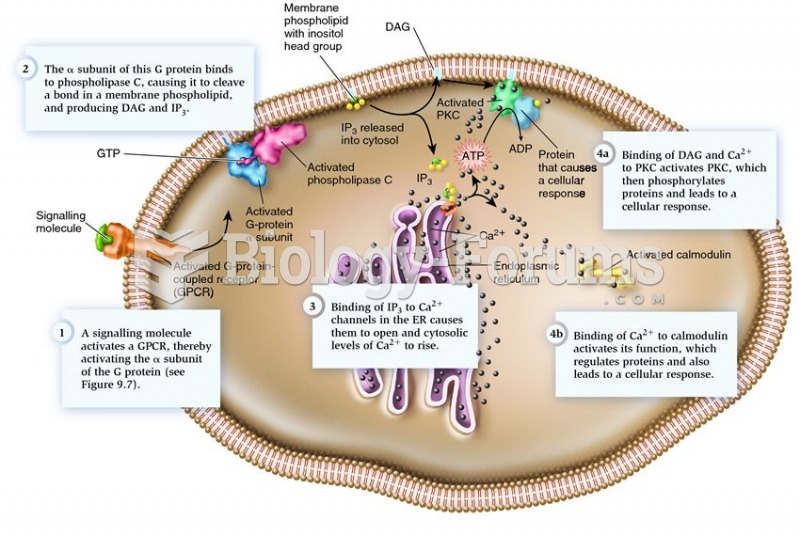|
|
|
Women are two-thirds more likely than men to develop irritable bowel syndrome. This may be attributable to hormonal changes related to their menstrual cycles.
The top 10 most important tips that will help you grow old gracefully include (1) quit smoking, (2) keep your weight down, (3) take supplements, (4) skip a meal each day or fast 1 day per week, (5) get a pet, (6) get medical help for chronic pain, (7) walk regularly, (8) reduce arguments, (9) put live plants in your living space, and (10) do some weight training.
The first documented use of surgical anesthesia in the United States was in Connecticut in 1844.
Famous people who died from poisoning or drug overdose include, Adolf Hitler, Socrates, Juan Ponce de Leon, Marilyn Monroe, Judy Garland, and John Belushi.
Russia has the highest death rate from cardiovascular disease followed by the Ukraine, Romania, Hungary, and Poland.
 A signal transduction pathway involving diacylglycerol (DAG), inositol trisphosphate (IP3), and chan
A signal transduction pathway involving diacylglycerol (DAG), inositol trisphosphate (IP3), and chan
 The relative influence of heredity and the environment in human behavior has fascinated and plagued ...
The relative influence of heredity and the environment in human behavior has fascinated and plagued ...





